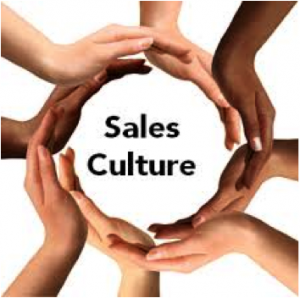 The first step in building a great sales culture is to evaluate your team. As a sales development expert and trainer, I learned long ago that simply throwing a new sales contest or a new training program at your sales team will have little impact unless you start by looking at what you are dealing with. Whether you use our evaluation or someone else’s, here are the questions you need to answer up front:
The first step in building a great sales culture is to evaluate your team. As a sales development expert and trainer, I learned long ago that simply throwing a new sales contest or a new training program at your sales team will have little impact unless you start by looking at what you are dealing with. Whether you use our evaluation or someone else’s, here are the questions you need to answer up front:
- How Does Sales Leadership Impact Your Sales Force?
- What Are Your Current Sales Capabilities?
- How Motivated Are Your Salespeople and How Are They Motivated?
- Can Your Sales Team Generate More New Business?
- Can Your Team Be Better at Reaching Actual Decision Makers?
- Can You Shorten Your Sales Cycle?
- Can Your Team Sell More Consultatively?
- Is Your Team Selling on Price and Who Can Become a Value Seller?
- Is Your Value Proposition Consistent?
- Can Your Team Close More Sales?
- Do Your Systems and Processes Support a High Performance Sales Organization?
- Can Your Team Be More Consistent with Your Sales Process?
- How Well Are Your Sales Leadership Strategies Aligned?
- Do You Need to Change Your Selection Criteria?
- Can You Improve Ramp-Up?
- Can You Improve Your Pipeline and Forecasting Accuracy?
- Can You Improve Your Sales Culture?
- Who Can Become More Effective in Their Roles?
- What Are the Short-term Priorities for Accelerated Growth?
Once you know what you are working with, you can put a plan in place that will make your life easier and make your salespeople more resilient, positive and profitable. You’ll need to be proactive and consistent. Ultimately, you’ll have a sales team that outshines the competition.
Although the specific challenges of building a great sales culture are different at every company or firm we work with, there are some things that we know for certain:
- The culture won’t change on its own.
- The culture won’t change without someone in management driving that change.
- The culture won’t change without identifying the people who should participate in that change.
- The culture won’t change without establishing simple, basic expectations.
- The culture won’t change without showing the members of the sales team how to do what they need to do to meet those expectations.
- The culture won’t change without providing training so that the member of the sales team can develop new skills and gain the confidence to use them.
- The culture won’t change without ongoing coaching.
- The culture won’t change without getting outside expert advice.
- The culture won’t change unless there is an early emphasis on low-risk concepts like cross-selling, up-selling, calling inactive customers/clients, and seeking referrals.
- The culture won’t change unless management commits to holding people accountable.

